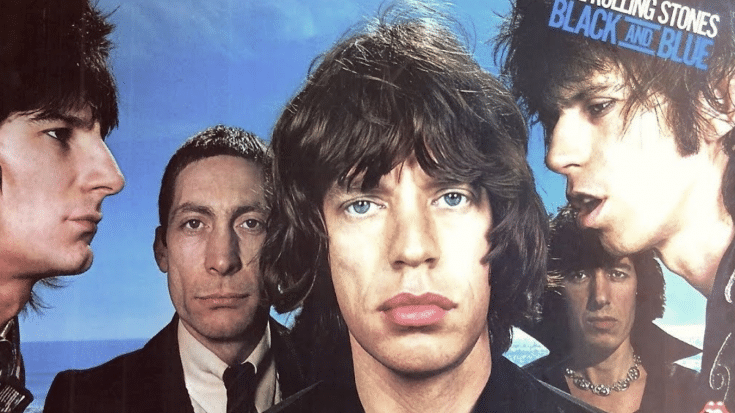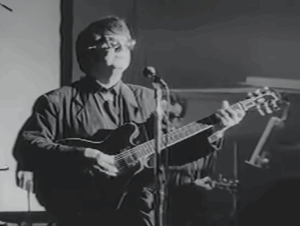7 70s Rock Albums That Were Just Cash Grabs

via Discography Channel Various Artists 2 / YouTube
The 1970s saw rock bands pushing boundaries, but not all records were crafted with care. Some albums seemed to be more about filling record labels’ wallets than giving fans something fresh. Here’s a look at seven ’70s rock albums that felt more like cash grabs than true artistic ventures.
1. KISS – “Double Platinum”
KISS was known for delivering big shows and flashy albums, but Double Platinum was essentially a compilation. Released in 1978, the album repackaged their hits, with only minor tweaks to some tracks. Though it was marketed as a “special release,” it mainly recycled the band’s popular songs.
Fans loved the originals, so they bought Double Platinum, too, keeping KISS high on the charts. However, it was clear this album wasn’t offering new material. For KISS, it was a smart commercial move, but for fans, it was a familiar lineup of songs with limited value.
2. The Rolling Stones – “Black and Blue”
Black and Blue by the Rolling Stones was marketed as a new studio album but leaned on jamming and experimentation more than focused songwriting. Tracks like “Hot Stuff” and “Hey Negrita” showed a different side, yet critics noted the lack of coherence in the album’s feel.
Released in 1976, Black and Blue still sold well, thanks to the Stones’ popularity. For the band, it was a break from their usual style, but to many listeners, it sounded more like a rushed production. Despite mixed reviews, it added to their long list of albums without much creative depth.
3. Alice Cooper – “Alice Cooper Goes to Hell”
Known for his theatrical rock, Alice Cooper’s Alice Cooper Goes to Hell followed his successful Welcome to My Nightmare but felt less inspired. The 1976 album leaned heavily on Cooper’s stage persona, rehashing familiar themes without breaking new ground.
Some tracks stood out, but the album didn’t quite deliver the same intensity as earlier releases. Instead, it felt more like a continuation of Welcome to My Nightmare, designed to keep Cooper in the spotlight rather than to introduce something fresh for fans.
4. Led Zeppelin – “The Song Remains the Same”
Led Zeppelin’s The Song Remains the Same served as a soundtrack to their concert film, but it was more a repackaging of live performances than a new offering. Released in 1976, the album showcased live versions of their hits without adding anything truly novel to their catalog.
Fans flocked to it, enjoying live renditions of classic songs. Yet, for others, it felt like a filler, a way to capitalize on the band’s immense popularity at the time. For Zeppelin, it was a hit, but creatively, it didn’t explore any new territory.
5. The Who – “Odds & Sods”
Odds & Sods by The Who was marketed as a rare collection of outtakes and B-sides, but it mostly cobbled together material that didn’t make it onto other albums. Released in 1974, it gave fans a peek into the band’s archives but lacked a unifying theme or fresh energy.
Despite the hype, Odds & Sods wasn’t much more than a compilation for die-hard fans. It was a commercial success, but it didn’t push the band creatively. Instead, it served to fill the space until The Who’s next major release.
6. The Doors – “An American Prayer”
After Jim Morrison’s death, An American Prayer was a controversial release. The band added new instrumentals over Morrison’s spoken word poetry, creating a unique but divided reaction. Fans who loved The Doors’ sound bought it, yet critics saw it as a way to profit off Morrison’s legacy.
This 1978 album was polarizing. Some praised the effort, while others felt it was less of a true Doors record and more of a commercial move. With Morrison no longer around, it seemed like a way to keep his image alive, without the usual energy the band brought.
7. Elvis Presley – “Elvis Sings for Children and Grownups Too!”
Released in 1978, Elvis Sings for Children and Grownups Too! was an odd collection of songs aimed at a young audience. Featuring tracks like “Old MacDonald” and “(Let Me Be Your) Teddy Bear,” it didn’t align with Elvis’s established rock-and-roll image.
The album felt like a cash grab, capitalizing on Presley’s fame without much thought for quality. While it attracted parents looking for Elvis music appropriate for kids, it was clear this wasn’t a typical rock album and seemed more of a quick money-maker than a serious addition to his catalog.













